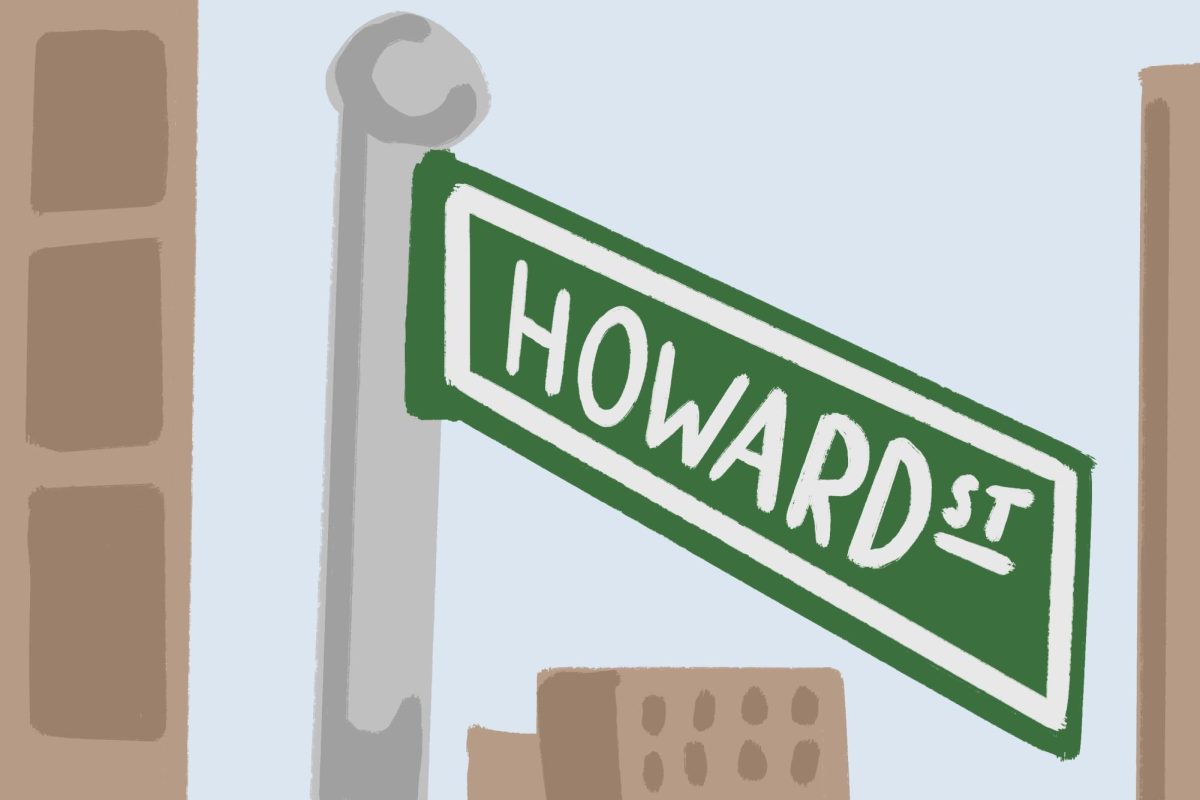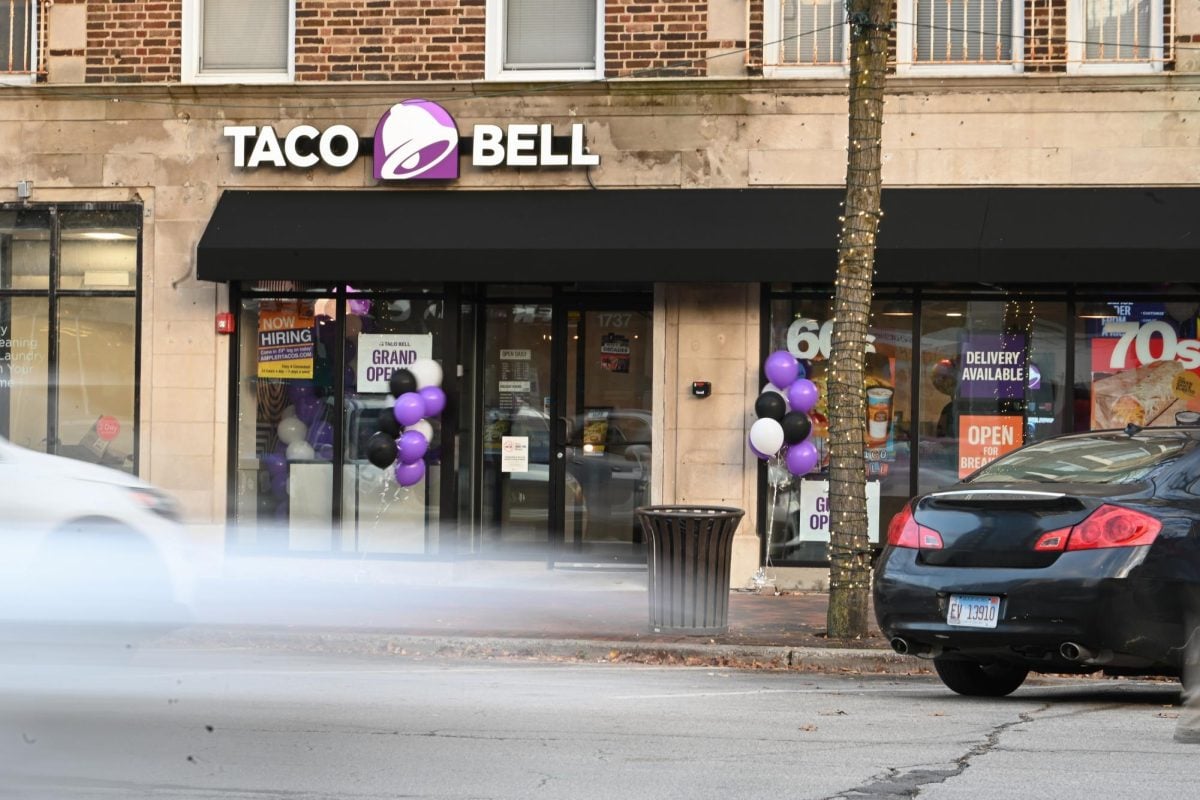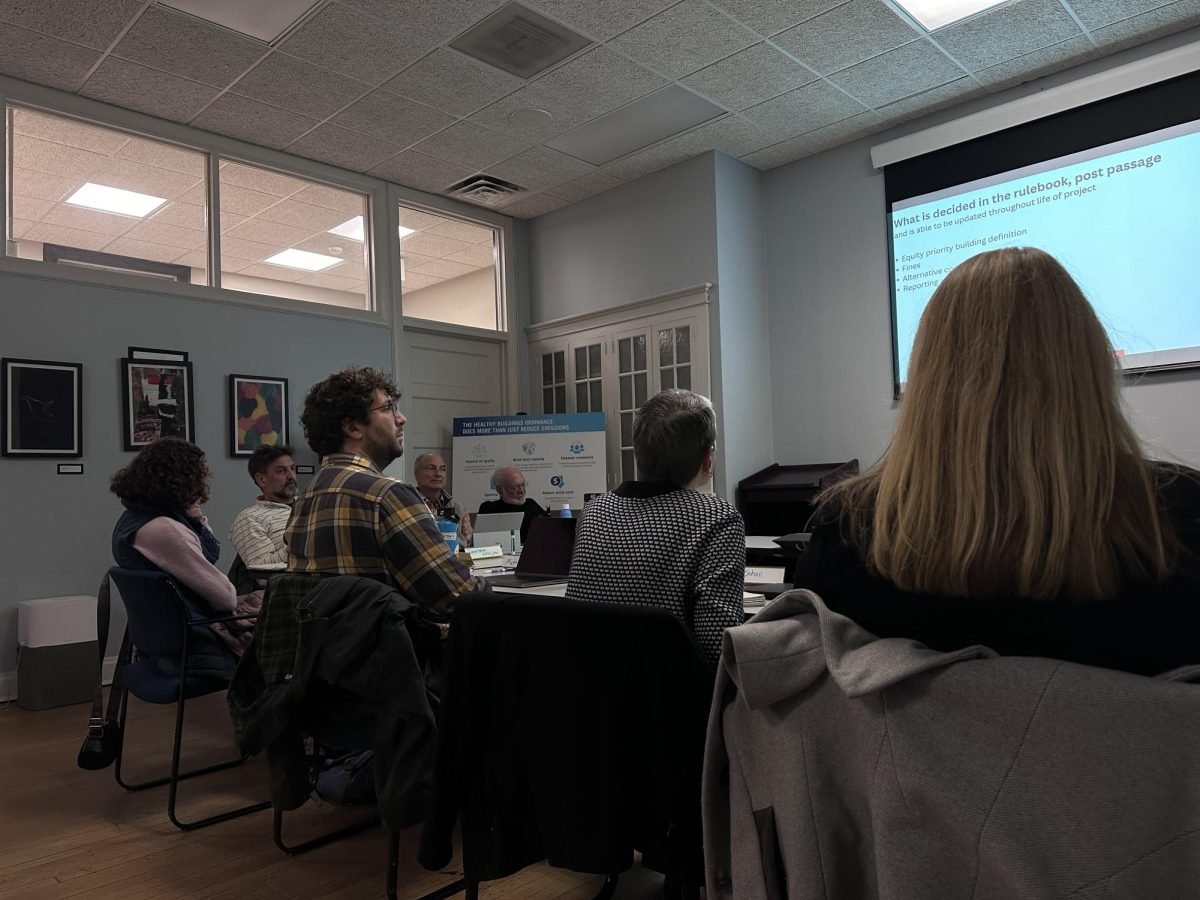More than five months after a $1.75 million funding proposal to address homelessness in Evanston failed to gain City Council approval, the city is looking to install security cameras and lighting around the Howard Street homeless encampment and has dispatched the Crisis Alternative Response Evanston team to the area.
The earlier proposal, drafted by Ald. Devon Reid (8th), would have provided $1.25 million to Connections for the Homeless for eviction prevention and shelter, $300,000 for the city to address encampments by offering drug treatment and case management and $200,000 for Evanston/Skokie School District 65 to provide temporary housing and administrative support to families in need.
The largest homeless encampment in the city last year was on Howard Street, adjacent to its Chicago Transit Authority “L” Station, according to the initial proposal.
Councilmembers showed support for spending $9,500 for cameras at the May 28 City Council meeting. Since then, Reid said he has worked with City manager Luke Stowe to allocate that funding to install cameras “soon” at the encampment, which he said will be increasingly monitored by both Evanston and Chicago police departments.
“I particularly care about child poverty, but I care about homelessness overall,” Reid said. “I’ve had mothers reach out and who have had concerns about the safety of their children because of the homelessness that we’re seeing in these encampments that are on Howard Street and in other places.”
Eric Ruder, director of communications for Connections for the Homeless, said conversations between the organization and city staff are ongoing. Reid mentioned that Connections is “the only game in town” to provide necessary on-the-ground case management.
He added that although Connections is able to provide services without the funding, the $1.25 million would have allowed the organization to offer its eviction prevention services to more north suburban Cook County residents.
“The housing crisis that exists in our country continues to worsen because we’re just literally millions of units short of what’s needed,” Ruder said. “We ultimately need more resources to meet all the need that is around us in northern suburban Cook County.”
Reid, who recounted experiencing homelessness as a teenager, estimated that there were roughly 20 people living at the Howard Street encampment when it was established last year. Reid added that the number has decreased since the city installed lighting on the Evanston side of the Howard CTA station, which straddles the border with Chicago.
At the May Council meeting, Mayor Daniel Biss expressed concern that the proposal had no clear funding source. Ald. Bobby Burns (5th) said the council needed more time to determine how to address the Howard Street encampment and whether its occupants were actually unhoused. Ald. Krissie Harris (2nd) said the Howard Street encampment was predominantly an issue of substance abuse, not housing. All motions on the issue were withdrawn.
“What we’re looking at here on Howard Street is a symptom of a much larger problem,” Ald. Jonathan Nieuwsma (4th) said at the meeting. “I would like to take a holistic, big picture approach rather than just dumping some money onto Howard Street.”
In an August 2023 memo to City Council, former District 65 Assistant Superintendent of Student Services Romy DeCristofaro said the district had 278 students experiencing housing insecurity or homelessness at that time. In response, the district has provided temporary housing, rent assistance, administrative support and more to these students and their families.
The district has utilized Connections funding to assist families with housing costs, but DeCristofaro said in the memo that the funding did not meet the needs of housing-insecure students.
District 65 did not respond to multiple requests for comment on its ability to support these initiatives since Reid’s funding package failed to pass.
The Health and Human Services Department would have received $300,000 from the initial funding package.
“The Health and Human Services Department has on many occasions worked with the District by providing temporary housing and other wrap-around services for individuals or families referred to the City by them,” Department Director Ike Ogbo told The Daily in an email.
Interfaith Action, a local nonprofit providing meals and an overnight shelter for people experiencing homelessness, has received Community Development Block Grants from the city and has worked with the city’s CARE team to support the overnight shelter, according to executive director of Interfaith Action Susan Murphy Berube.
Currently, Interfaith Action’s budget sits at $500,000 according to Berube, which she said is “very small.”
Berube said the organization would like more funding from the city and other sources to operate its shelter year-round, but said she is optimistic about zoning changes the city is considering to build more affordable housing.
“Homeless people get ‘no’ answers everywhere they go,” Berube said. “‘No, you can’t have money. No, you can’t sit there.’ So I learned from that, and what we do is find ways to say yes.”
Email: [email protected]
X: @IsaiahStei27
Email: [email protected]
X: @shreyasrin
Related Stories:
— City Council indicates support for migrant shelter — but not downtown
— City Council approves Connections for the Homeless rooming house permit, signs operating agreement






